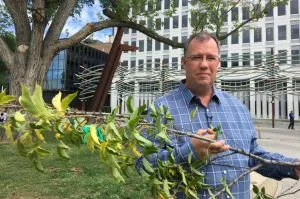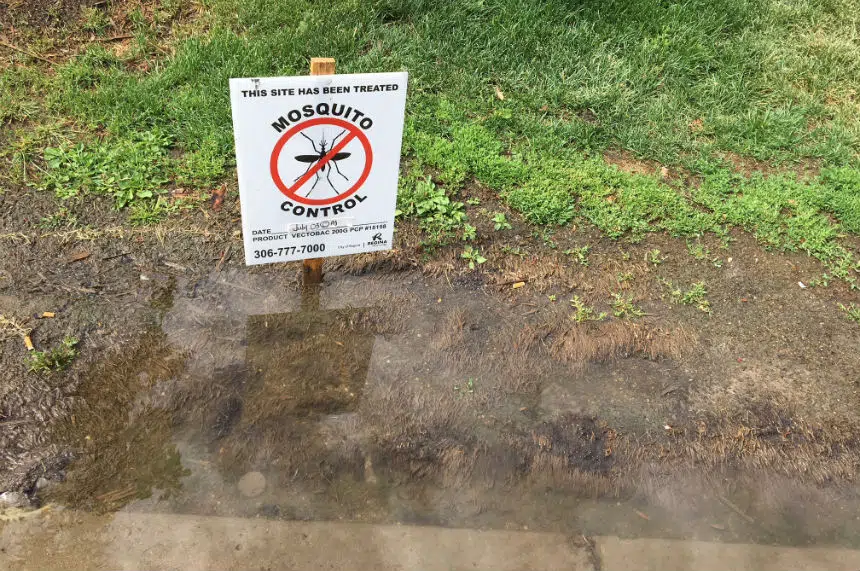Regina city crews continue their battle against pesky bloodsucking mosquitoes this summer.
Russell Eirich, manager of forestry and pest control for the City of Regina, said there were about 96 mosquitoes counted in each city trap on Friday, which is three times higher than the historical average of 31 per trap. He said it’s even worse outside the controlled areas which are treated where the city is counting 374 mosquitoes per trap.
Culex mosquitoes which can carry diseases such as West Nile make up about two per cent of the trapped mosquitoes.
“We’re still fairly low in terms of the Culex numbers, that’s a good thing, but it is there,” Eirich commented.
City crews are treating small bodies of standing water, targeting mosquito larvae inside the city. They are also treating larger bodies of water within a five mile radius of city limits.
“We’re actually trying to create a bit of an artificial bubble with the low mosquito population that way,” Eirich explained.
He is urging people once again to check their own yards for any potential sources of standing water, noting that one small bucket can hatch thousands of mosquitoes and those are out of the control of the city treatment program.
Typically, Eirich said the aggressive biting mosquito populations tend to spike about two weeks after a large rainfall.
Dutch elm disease case confirmed
With campfire season in full swing the city is also reminding people to not haul firewood back and forth, in order to prevent the spread of Dutch elm disease (DED).
Eirich said the city confirmed one case of DED in a tree on a private property on Thursday. Last year there were 10 confirmed cases, and typically in previous years the average has been about five to six cases.
“If you go outside the city there are regularly found cases of Dutch elm disease as close as two miles away,” Eirich said. “You have to think of Regina as a little bit of an island, so we have that prairie buffer helping us out a little bit.”
He said there is a lot of DED present in Regina Beach, Fort Qu’Appelle, Indian Head and many provincial parks along the Qu’Appelle Valley.
“We’re asking people to not move firewood,” Eirich said. “Buy your wood local, burn it local, but don’t move that firewood in and out of the city because you can bring in Dutch elm disease.”

Russell Eirich, manager of forestry and pest control for the City of Regina, shows how to spot signs of Dutch elm disease July 3, 2018. (Adriana Christianson/980 CJME)
While city crews go out to inspect both public and private Elm trees, residents are being asked to watch out for signs of Dutch Elm in their own yards such as branches with brown leaves that don’t fall off.
The city will inspect and test trees on private property by sending samples to provincial labs for testing. Publicly owned trees are removed within 24 to 48 hours of a positive test, and the city will treat neighbouring trees with fungicide to prevent the spread through the root system.
Homeowners are responsible for paying for the removal of privately-owned trees under a city bylaw. Typically Eirich said people in Regina have a high rate of compliance and concern for protecting the urban forest, with regular reports coming in to city hall.







